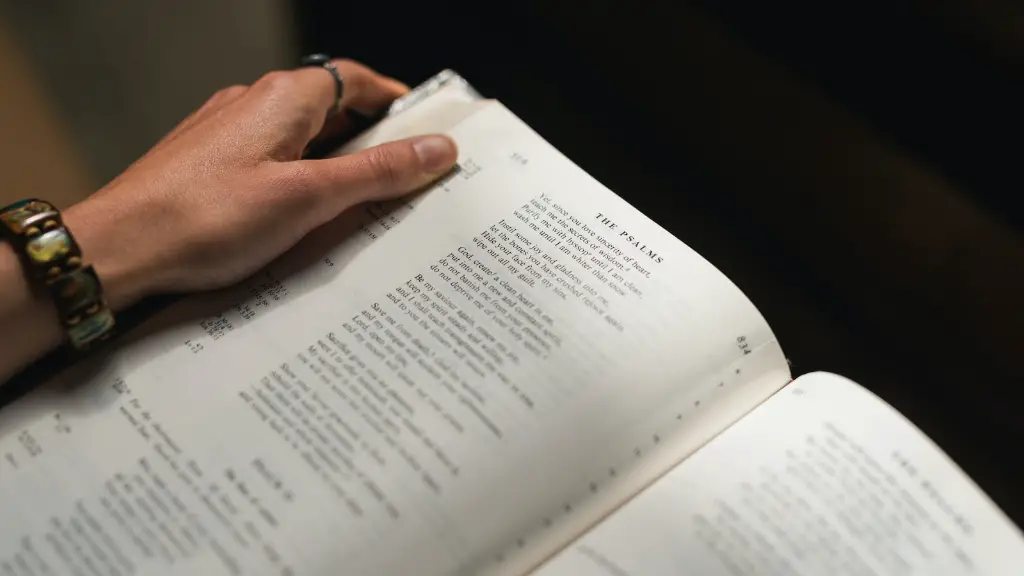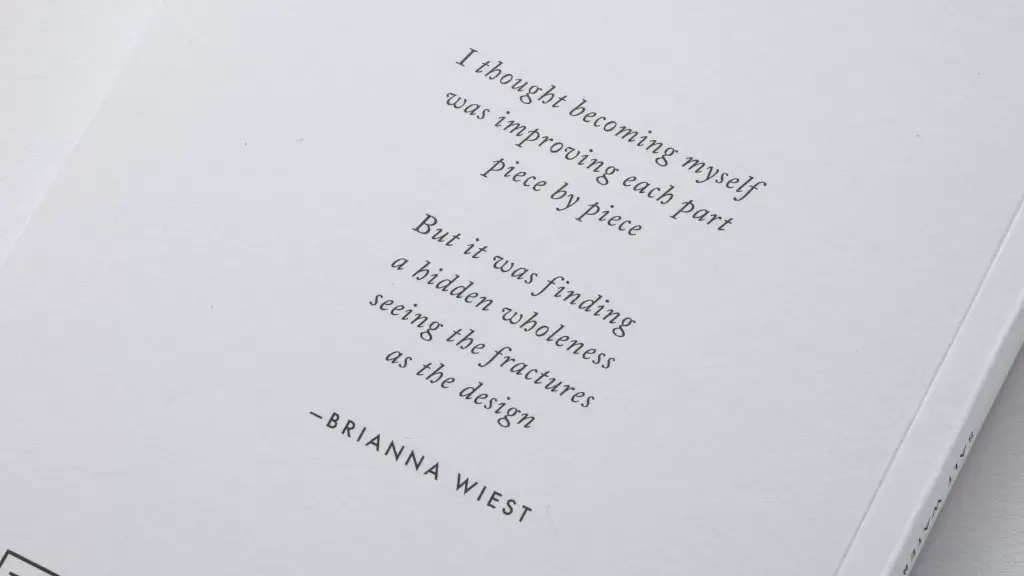The Harlem Renaissance: How It Impacted Langston Hughes
Langston Hughes was an African-American poet and leading figure in the Harlem Renaissance of the 1920s and 1930s. He was inspired by the works of writers such as W.E.B. Du Bois, Carl Van Vechten, and Alain Locke, and his work was heavily influenced by the world he grew up in – the Harlem neighborhood of New York City. Hughes was not only a leader in the arts during this time period, but also an advocate for civil rights, working to advance the cause of civil rights for all people, regardless of race.
The Harlem Renaissance was a period of creativity, originality and intense discussion of race and culture. It was a time marked by the connections of African-American writers, artists, musicians and intellectuals in order to come together and put forth artistic expressions that challenged the status quo. Hughes was deeply influenced by this atmosphere of creativity, dialogue and activism and used it as inspiration for his work. He was most influenced by the writings of Du Bois and Locke, both of whom used their art to highlight the realities of African-American life and speak out against the injustice and racism of their day.
In terms of literary influence, Hughes was heavily influenced by Harlem Renaissance writers such as Claude McKay and Jean Toomer, who both wrote about the struggles of African-Americans in an era of increased racial tensions. Additionally, Hughes drew inspiration from the works of Langston Hughes, Paul Laurence Dunbar, Sterling Brown, and Countee Cullen. These writers explored themes of duality, humanity, love and struggle, which were important elements of Hughes’ work. Furthermore, Hughes was a great admirer of the poet James Weldon Johnson, whose close-focus on race and religion flew in the face of the traditional poetry of the time.
Hughes was also inspired by African American music, especially jazz and blues. He was also an admirer of the work of the great African-American composers and performers like Louis Armstrong, Duke Ellington and Bessie Smith, who used music to express the African-American experience. Hughes was especially inspired by the boldness and originality of jazz and the willingness of African-American musicians and composers to break from tradition and explore new musical forms. This spirit of exploration and subversion became a major element in Hughes’ poetry.
Finally, Hughes was also inspired by his own observations of contemporary African-American life and culture. He wrote about the everyday experiences of African-Americans living in the big cities of America that few writers had tackled before, and he used his poetry to comment on themes such as racism, segregation, and the struggle for civil rights. These elements of Hughes’ work represented his commitment to the cause of racial justice, a cause that was a major part of the spirit of the Harlem Renaissance.
The Inspiration of William Waring Cuney
One of the major influences on Langston Hughes was the poet William Waring Cuney, who he was close to during the Harlem Renaissance. Cuney was one of the leading African-American poets of his day and Hughes drew a great deal of inspiration from his work. Cuney’s poetic style was heavily influenced by American literary traditions such as African-American folk poetry, black church poetry and the blues. Hughes admired Cuney’s work for its ability to express the African-American experience in a compelling, lyrical style. Cuney’s poems spoke to the sadness, the joy and the struggles of everyday African-American life, and Hughes was deeply moved by the range and emotion of Cuney’s work.
In addition to being an important influence on Hughes’ writing, Cuney was also an important mentor for the young poet. Hughes looked up to Cuney for his experience and mastery of the art of poetry. Cuney was able to provide Hughes with valuable insight and feedback regarding his work. Cuney also introduced Hughes to some of the other key African-American voices of the time, such as Carl Van Vechten, Gwendolyn Bennett and Countee Cullen. These contacts helped to expand Hughes’s literary horizons and to open up new possibilities for his work.
The Influence of African-American Identity
Hughes was heavily influenced by the African-American identity. Coming of age during the Harlem Renaissance, Hughes was exposed to powerful new ideas about African-American culture and identity, ideas that he found immensely inspiring. He was especially moved by the idea of the ‘New Negro’, a concept formulated by Alain Locke that embraced black pride and identity. This was a concept that was vitally important for Hughes, and one that inspired much of his work
The Harlem Renaissance also opened up new doors for African-Americans to explore their own cultures, and this had a huge impact on Hughes’ writing. He was inspired by the art and music of the time, and he was also influenced by the language and musicality of African-American dialect. Hughes used these ideas to create poetry that captured the spirit of the people he wrote about, a spirit that was shaped by the complex experience of African-American identity and culture.
Finally, Hughes drew much of his inspiration from the African-American oral tradition. He was heavily influenced by the folk tales, hymns, rhymes, proverbs and spirituals of the African-American oral tradition, and he admired the beauty, power and emotional rawness of the tales that had been passed down from one generation to the next.
His Experiences of Racism
Hughes’ life was intrinsically linked to the racism of his day. He experienced racism in many of its forms, both in his boyhood in the American South and in his life as an adult in the North. He witnessed first hand the injustice, violence and hate that characterised the lives of so many African-Americans of his day, and it was these experiences that shaped his poetry and the messages he put forth in his writing. Hughes used his work to speak out against the racism and inequality of his day and to highlight the difficulties that African-Americans still faced in the country.
It was this experience that led Hughes to become an advocate for civil rights and to use his art to stand up for what was right. He respected the works of African-American activists like Du Bois and Locke, who used their art to fight for justice and equality. He also admired the boldness and innovation of the African-Americans of his day who refused to accept the status quo and used their art to challenge the inequality and injustice of their circumstances.
Hughes was deeply moved by the courage and determination of African-Americans in the face of the everyday discrimination and prejudice they faced. He drew strength from their spirit, and this is something that he sought to portray in his work. He used his poetry to honour the courage of those who had come before him, and to speak out against a society that sought to deny African-Americans the rights they deserved.
His Beloved Themes of Love, Struggle and History
Hughes was influenced in his work by many of the themes and topics he explored in his poetry. Hughes used his work to celebrate African-American culture, to talk openly about the experiences of African-Americans, and to provide a voice for the struggles these people faced. He was particularly interested in themes of love, struggle, and history and these became major elements of his work. His poetry often explored these ideas in complex and powerful ways, providing readers with an insight into the struggles of African-Americans during this time.
Hughes also used his work to celebrate the rich history of African-American culture and to draw attention to aspects of this history that were often overlooked. He was particularly interested in the folklore and spirituals of the African-American culture and sought to bring these to the forefront of his work. Hughes admired the beauty and power of these cultural expressions and used his poetry to explore and celebrate them.
Finally, Hughes was also exploring the theme of struggle and of the courage and determination African-Americans needed to battle the racism and inequality they still faced. Though his work did not always explicitly address these ideas, they were always there in the background, creating a powerful and emotional spirit in his poetry. Hughes believed in the power of art to spark change, and his writings sought to provide an insight into the world of the African-American struggle and the courage needed to fight it.
His Passion for Advocating Social Justice
In addition to being a great artist, Hughes was also a passionate advocate for civil rights and social justice. He was heavily influenced by the idea of the ‘New Negro’ and sought to use his art to support African-American causes. His writings often celebrated the strength and courage of African-Americans in the face of systemic racism and oppression, and he was an advocate for positive change in the world.
Hughes was a vocal opponent of the racism that still plagued America and he used his writing and speaking engagements to encourage people to take a stand against injustice. He was also a firm believer that art could be a powerful tool for social change and he used his talents to bring people together and fight for what was right. Hughes was passionate about advocating for social justice and his work speaks to this passion.
Hughes believed that the fight for justice and equality was something that all people could participate in, and he strived to bring people together to work towards a society free of oppression and prejudice. He was imbued with a passionate belief in the essential humanity of all people and his life and work were both devoted to this ideal. Hughes was a leader in the civil rights movement and a beacon of hope in an uncertain time, and he is remembered today for his commitment to equality and justice.
His Role in the Harlem Renaissance
As an iconic figure of the Harlem Renaissance, Hughes played a vital role in this vibrant era of African-American culture, creativity and art. He was a leader and an example, and his work was both inspiring and empowering. Hughes was also an outspoken advocate for African-American rights and his writings brought attention to the issues facing African-Americans in a way that had never been done before. Hughes was a true pioneer whose work has endured and whose influence is still felt today.
Hughes was an innovator, a risk-taker and an inspiration. He sought to explore new ideas and to push the boundaries of literature and poetry. He was an important mentor for aspiring African-American poets and an example for all artists. Hughes was able to show that art can be used for positive change, and that is something that we can celebrate today.
Hughes was part of a generation of African-American writers and artists who sought to challenge racism and inequality and to use art to inspire and uplift. He was, and still is, an enduring inspiration for all writers and artists, and it is thanks to the courage and determination of figures like Langston Hughes that we are able to be inspired by great African-American art and literature today.





